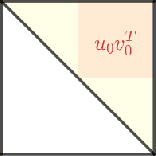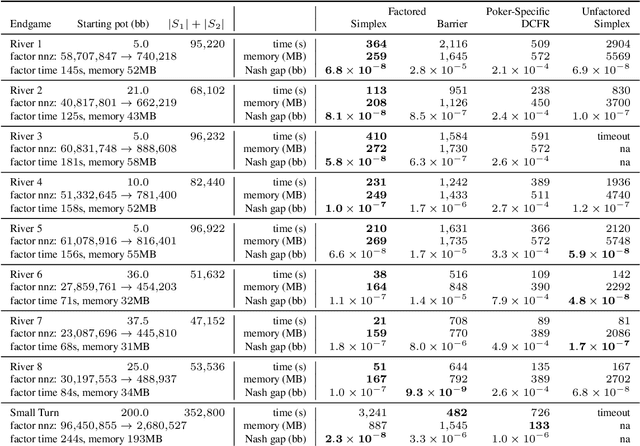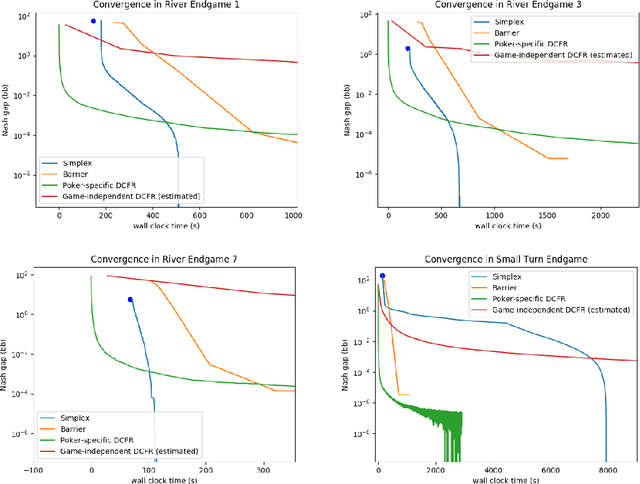Sparsified Linear Programming for Zero-Sum Equilibrium Finding
Paper and Code
Jun 29, 2020



Computational equilibrium finding in large zero-sum extensive-form imperfect-information games has led to significant recent AI breakthroughs. The fastest algorithms for the problem are new forms of counterfactual regret minimization [Brown and Sandholm, 2019]. In this paper we present a totally different approach to the problem, which is competitive and often orders of magnitude better than the prior state of the art. The equilibrium-finding problem can be formulated as a linear program (LP) [Koller et al., 1994], but solving it as an LP has not been scalable due to the memory requirements of LP solvers, which can often be quadratically worse than CFR-based algorithms. We give an efficient practical algorithm that factors a large payoff matrix into a product of two matrices that are typically dramatically sparser. This allows us to express the equilibrium-finding problem as a linear program with size only a logarithmic factor worse than CFR, and thus allows linear program solvers to run on such games. With experiments on poker endgames, we demonstrate in practice, for the first time, that modern linear program solvers are competitive against even game-specific modern variants of CFR in solving large extensive-form games, and can be used to compute exact solutions unlike iterative algorithms like CFR.
 Add to Chrome
Add to Chrome Add to Firefox
Add to Firefox Add to Edge
Add to Edge